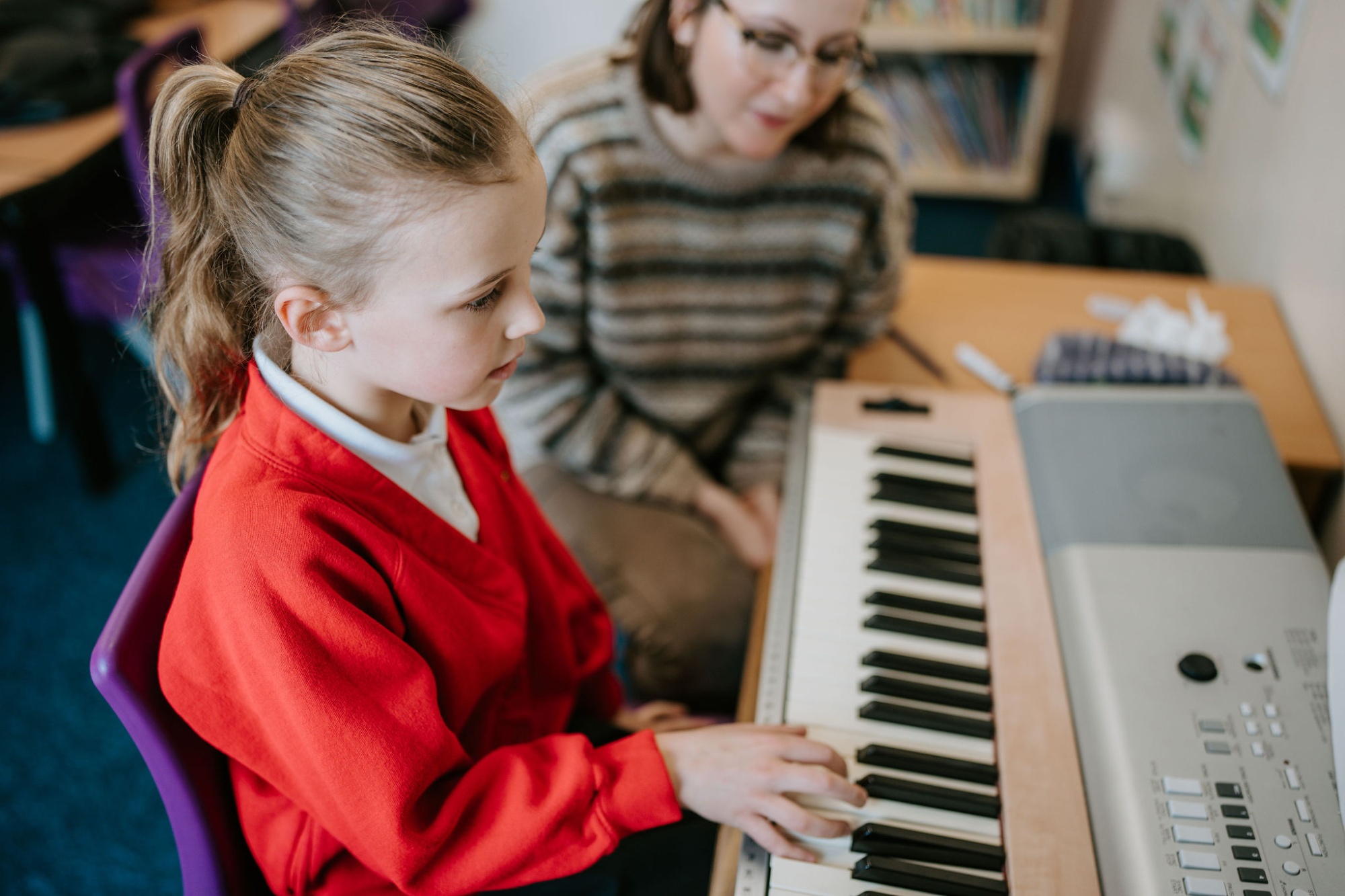Music
Music Curriculum Intent

At St John’s:
-
Children are given opportunities to create, collaborate with others and celebrate their music in a supportive and enriching musical environment enabling them to experience a joy and life-long love of music.
-
Through our growth mindset approach, our pupils are taught to take risks and lean from their mistakes to become resilient learners. Examples of composers and musicians through history are great examples for our children.
-
Children will be given opportunities to excite, enrich and enhance their learning throughout their musical journey in primary school by:
-
Listening to and appreciating music with increasing musical knowledge and terminology to express details in the music such as pitch, dynamics, timbres.
-
Listen to, review and evaluate the work or great composers and musicians from a range of historical periods, genres, styles, traditions and cultures. (This is linked to our British and school values of respect, kindness, tolerance and understanding of other musical cultures and traditions).
-
Exploring and playing a variety of tuned and untuned instruments and learn to read graphic and standard notation which can then be applied to create their own compositions.
-
Opportunities to perform in the classroom and in the wider community, including solos, duets, small ensembles and as part of our whole school.
Music Curriculum Implementation
At St John’s, we use the Kapow scheme of learning for music which takes a holistic approach to music, in which all the individual strands below are woven together to create engaging and enriching learning experiences:
-
Performing
-
Listening
-
Composing
-
The history of music
-
The inter-related dimensions of music
-
They will learn to recognise and name the interrelated dimensions of music – pitch, duration, tempo, timbre, structure, texture and dynamics and use these expressively in their own improvisations and compositions.
-
Each year group completes 3 units during the academic year and each unit combines these strands within a cross-curricular topic designed to capture pupil’s imagination and encourage them to explore music enthusiastically.
-
Alongside lessons in class, the children will take part in music and singing through weekly assemblies.
-
Children will be taught how to sing fluently and expressively and play tuned and untuned percussion instruments accurately and with control.
-
In year 3, children will have the opportunity to learn the ocarina through the instrumental scheme lessons which complement the Kapow scheme of work and allow them to develop their expertise in using a tuned instrument for a minimum of one term as recommended in the Model Music Curriculum.
-
Additional individual music lessons are provided for year 4, 5 and 6 which are carried out by an external provider to enhance the profile of music in school.
-
The Kapow Primary scheme follow the spiral curriculum model where previous skills and knowledge are returned to and built upon, including regular retrieval opportunities.
-
Progression is demonstrated through tackling more complex tasks and completing simple tasks better, as well as developing understanding and knowledge of the history of music, staff and other musical notations, as well as the interrelated dimensions of music.
-
In each lesson, pupils actively participate in musical activities drawn from a range of styles and traditions, developing their musical skills and their understanding of how music works.
-
Teaching strategies include:
-
Independent tasks
-
Paired and group work
-
Improvisation
-
Teacher-led performances.
-
Hands-on lessons incorporate movement and dance elements
-
Cross-curricular links with other areas of learning.
-
Differentiated guidance is available for every lesson to ensure that lessons are accessed by all pupils and opportunities to stretch pupil’s learning are available when required.
-
The school has access to a wide range of instruments such as glockenspiels, handbells, boom whackers and other untuned percussion to support the teaching of music.
-
Extra- curricular activities at St John’s include the KS2 singing group, signing choir and the children performing concerts at Christmas, taking part in the local music and drama festival and an end of year 6 musical performance.
Music Curriculum Impact
The impact of Kapow Primary’s scheme is monitored through both formative and summative assessment. The quality and effectiveness of music within our school will be monitored by:
-
The headteacher, SLT and the music subject leader through regular video recordings, book scrutiny, pupil voice and assessment of children’s learning.
Pupils should leave St John’s equipped with a range of skills to enable them to succeed in their secondary education and to be able to enjoy and appreciate music throughout their lives:
-
Be confident performers, composers and listeners and be able to express themselves musically at and beyond school.
-
Show an appreciation and respect for a wide range of musical styles from around the world and understand how music is influenced by the wider cultural, social and historical contexts in which it is developed.
-
Understand the ways in which music can be written down to support performing and composing activities.
-
Demonstrate and articulate an enthusiasm for music and be able to identify their own personal musical preferences.
-
Meet the end of key stage expectations outlined in the National Curriculum for Music.
